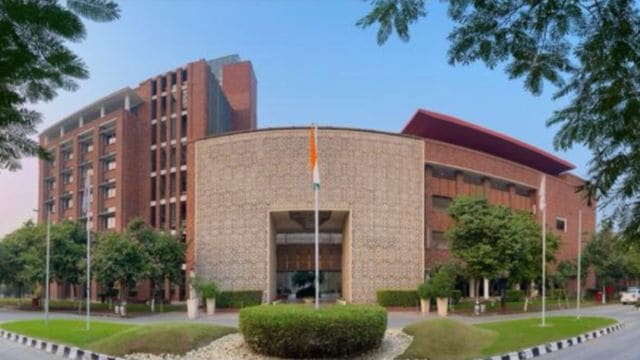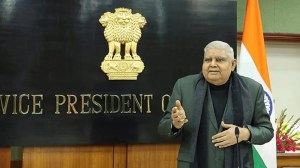‘Attack on academic freedom’: Ashoka University body condemns arrest of professor Ali Khan Mahmudabad over Op Sindoor remarks
A statement dated May 16, endorsed by over 1,000 members of the academic community, demanded that the Commission withdraw the notice and issue an apology.
 (Source: www.ashoka.edu.in)
(Source: www.ashoka.edu.in)Reacting to the arrest of Ali Khan Mahmudabad, a professor at the Sonipat-based Ashoka University, a student of the private university Sunday said Mahmudabad “has always been honest inside and outside the classroom. He’s never hidden his views.”
“He’s originally from Lucknow and keeps going up and down between Delhi and Lucknow, but he’s always been dedicated to his students and his work,” the student added.
Ali Khan Mahmudabad, the head of the Department of Political Science at Ashoka University, was arrested by the Haryana Police in Delhi on Sunday, just days after he was served a show-cause notice over his social media remarks on Operation Sindoor.
The arrest has triggered condemnation from across India’s academic community. The Haryana State Commission for Women, which issued the notice on May 12, alleged that Mahmudabad’s comments “disparaged women officers in the Indian Armed Forces” and promoted “communal disharmony.” Police sources told The Indian Express that a First Information Report was registered based on a complaint by a BJP leader, though the specific charges have not yet been officially disclosed.
In an internal email circulated Sunday afternoon, the Committee for Academic Freedom (CAF) at Ashoka University called the arrest “disproportionate punishment made on flimsy grounds,” and “a fundamental attack on academic freedom.”
“Prof Mahmudabad’s statements on social media and elsewhere express a deep respect for the Indian armed forces, including women officers, while calling for peace and rationality,” the CAF stated. “This is a clear curtailment of his freedom as an academic and public intellectual… We call upon Ashoka University to publicly stand by Prof Mahmudabad,” it added.
Official sources at Ashoka University told this publication, “We have been made aware that Prof. Ali Khan Mahmudabad has been taken into police custody earlier today. We are in the process of ascertaining details of the case. The university will continue to cooperate with the police and local authorities in the investigation, fully.”
A statement dated May 16, endorsed by over 1,000 members of the academic community, demanded that the Commission withdraw the notice and issue an apology.
“From a bare reading of his original posts, it is clear that Prof. Khan praised the strategic restraint of the armed forces… Far from being misogynist or anti-national, Prof. Khan’s posts are driven by a clear moral vision of what being a good citizen means,” the statement read.
The statement added that Mahmudabad’s arrest was part of a “wider climate of hostility” toward public intellectuals and academics engaging in dissent or critique.
“It is preposterous that even praising the army, while criticising those who clamour for war, can now invite such harassment and censorship… The Commission has shown how constitutionally protected freedom of speech continues to be under threat from forces that seek to spread hatred and destabilise India,” the statement further said.
Mahmudabad has been a faculty member at Ashoka University since 2016, said student sources, and is widely recognised for his academic and public engagement on religious identity, political culture, and democracy in South Asia and the Middle East.
A Cambridge-educated scholar, he earned his PhD researching Muslim identity formation in North India between 1850 and 1950, with a focus on the mushā‘irah (poetic symposium) and evolving notions of watan (homeland). He has also written on transnational Shi’a networks, studied Arabic in Damascus, and conducted fieldwork across Syria, Lebanon, Egypt, Iran, Iraq, and Yemen. Mahmudabad holds a double major in History and Political Science from Amherst College (USA) and is fluent in Arabic, Persian, and Urdu.
He has been a regular contributor to newspapers and magazines in English and Urdu, and has participated in public debates on issues ranging from minority rights and nationalism to the role of religion in democracy and national security.
The controversy began with two social media posts on May 8 and 11, in which Mahmudabad reflected on the media optics surrounding Operation Sindoor. He acknowledged the significance of women officers – Colonel Sofia Qureshi and Wing Commander Vyomika Singh – leading the military briefing, but added that such optics would be “hypocrisy” if not backed by actual structural change for women across the Armed forces and public institutions.












